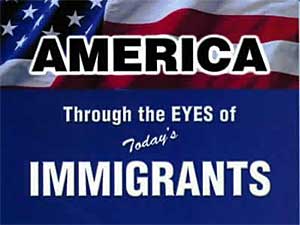May 16, 2005
 |
| A Nigerian couple who live in Minnesota now have written a guidebook of sorts for immigrants, based on their experiences trying to learn American culture. (Photo courtesy of BST Press) |
St. Paul, Minn. — Better education, better jobs, and political and economic stability -- those are all reasons people from around the world choose to immigrate to the United States. But once here, language, finances and discrimination can all become obstacles to effectively integrating into American culture.
Many immigrants come to the U.S. with little money or little education -- but not all. Of the 2.6 million people who immigrated to the U.S. between 2000 and 2003, 36 percent had a college education. Nearly 12 percent held advanced degrees. But still, many were not able to find work matching their education or skill levels.
That was the case for a couple who moved to Minnesota from Nigeria. Bola Taiwo came to the U.S. six years ago. He was a neuroscientist in his native country. His wife -- who is also named Bola -- is a trained scientist as well.
The couple lives in Roseville, and they've written a guidebook of sorts for new immigrants who want to attain professional careers.
"America Through the Eyes of Today's Immigrants" covers topics from understanding the American tax system, to the effect of foreign accents on employability, to dealing with auto mechanics.
The Taiwos spoke to MPR's Tom Crann about their experiences, and why they believe the book is a necessary resource for other immigrants.
To listen to their interview, choose the audio link in the right column.




